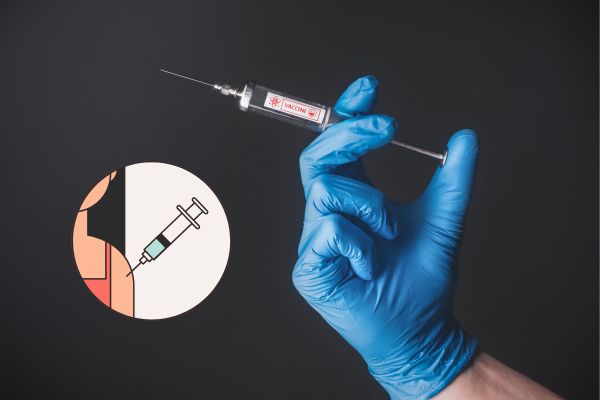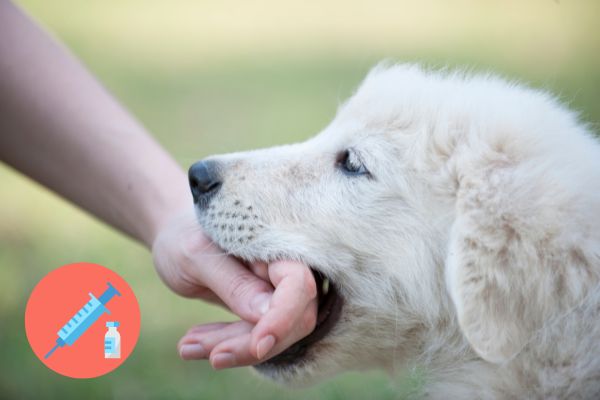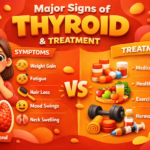Dog bites are far more frequent than one may think, approximately millions of people each year get bitten by dogs. In addition to inflammation, soreness, or tenderness, dog bites can also cause health problems, such as bacteria, psychological disorders and even rabies, that can cause death.
This article by a doctor in Delhi at Doctor’s Hub Dwarka explains dog bite treatment, vaccination, and preventive measures.
Why Immediate Treatment for Dog Bite Is Critical?
Dog bites may seem minor. But they pose significant health risks. Bacteria from a dog’s saliva can lead to infections, while the rabies virus, though rare in some regions, is almost always fatal once symptoms develop. Prompt action minimizes complications and ensures quick treatment.
Dog Bite Categories
Dog bites are classified based on severity:
- Category 1: No skin breakage or minor contact like licking. No treatment is required.
- Category 2: Superficial wounds or minor bites without bleeding. Immediate vaccination is needed.
- Category 3: Deep wounds with bleeding or multiple bites. This category requires rabies immunoglobulin (RIG). A full dog bite injection schedule, and careful wound care.
First Aid for Dog Bites
First aid plays an important role in reducing infection risks before professional medical care. Here’s what to do:
- Clean the Wound Immediately: Use clean water and soap to wash the bite area for around ten minutes. It cleans the area of dirt, saliva, or bacteria.
- Disinfect the Area: Use the iodine solution to clean the wound to avoid bacterial growth if the wound is deep.
- Stop the Bleeding: If the wound starts to bleed. Use a clean piece of fabric and press gently on the area to stop the bleeding.
- Bandage the Wound: Place a sterile dressing over the wound to shield it from other bacteria.
- Visit the doctor for dog bite injections: See a doctor to start the vaccination process.

Step-by-Step Treatment for Dog Bites | Vaccination Center in Dwarka
A doctor will evaluate the wound’s severity, check the dog’s vaccination history if available, and decide on the necessary treatment plan. If the dog’s rabies status is unknown. The treatment for rabies is initiated immediately. The doctors will ask your tetanus vaccination history as well.
Rabies Vaccination
Rabies vaccination is necessary for preventing this fatal animal bite infection. The dog bite vaccine is given in multiple doses over a specific schedule.
| Day | Action |
| Day 0 | First vaccine dose and RIG (if required) |
| Day 3 | Second dose |
| Day 7 | Third dose |
| Day 14 | Fourth dose |
| Day 28 | Fifth dose (optional in certain cases) |
Rabies Immunoglobulin (RIG)
For Category 3 bites, RIG is injected directly into and around the wound. This provides immediate protection while the vaccine starts working.
Tetanus Shot
Dog bites can also introduce tetanus bacteria. If you haven’t had a tetanus injection for dog bite in the past five years, you’ll need one.
Antibiotics and Pain Relief
In some cases, doctors prescribe antibiotics to prevent bacterial infections. Painkillers may also be recommended to manage discomfort.
What Are the Risks of Untreated Dog Bites?
- Infections: Dog bites can introduce bacteria, leading to infections like cellulitis, sepsis, or abscess formation.
- Rabies: Rabies is a viral infection that attacks the nervous system and is nearly always fatal if untreated. Immediate vaccination is the only way to prevent it.
- Nerve Damage: Rabies is transmitted through the saliva of an infected animal. Typically via bites. Scratches or open wounds exposed to saliva can also pose a risk.
- Scarring: Deep wounds can leave scars, which may require cosmetic procedures for correction.
- Psychological Impact: Experiencing a dog bite can lead to anxiety or fear around animals, particularly in children.
Rabies and Its Prevention
Rabies is an infectious disease that originates from animals and passes on to humans. It is caused by the rabies virus and affects the neurological system. When symptoms develop, rabies is always lethal. In this case, the only viable measure is to prevent the emergence of the virus through vaccination.
How Rabies Spreads after animal bites?
Rabies is transmitted through the saliva of an infected animal. Typically via bites. Scratches or open wounds exposed to saliva can also pose a risk.
Rabies Vaccine Safety
Modern rabies vaccines are safe and generally free of severe side effects. Mild reactions like swelling or soreness at the injection site are common.
Dog Bite Precautions
- Avoid Self-Medicating: Never treat a dog bite at home without the intervention of a doctor.
- Monitor the Wound: Make sure that you clean the wound and look out for signs of infection such as inflammation, oedema or pus.
- Follow the Vaccine Schedule: Complete all the doses of the rabies vaccine prescribed by a doctor.
- Avoid Contact with Stray Animals: Avoid interaction with stray dogs or animals with unknown vaccination history
How to Prevent Dog Bites?
Educate Children About Dogs: Teach children how to approach and interact with dogs safely. Avoid sudden movements or loud noises that might startle the animal.
Vaccinate Your Pets: Ensure your pets receive regular vaccinations, including the rabies vaccine.
Avoid Aggressive Animals: Stay away from dogs that display aggressive behaviors like growling, barking, or snapping.
Practice Responsible Pet Ownership: Train your dog to be sociable and use a leash in public spaces.
Dog Bite Treatment Costs and Accessibility
Costs
The cost of treatment depends on factors like the severity of the bite and whether RIG is required. Government facilities often provide free or subsidized treatment, while private clinics may charge higher fees. You can visit Doctors Hub Clinic in Dwarka and Gurgaon for affordable vaccination after dog bite.
Accessibility
Seek out clinic in Gurgaon and Dwarka in Delhi with available vaccines and skilled medical staff. If you’re searching for the “best doctor in Dwarka” or “doctor near me,”. Choose a clinic specializing in vaccination and treatment for the best care.
When to Seek Immediate Medical Help
- The bite is deep and bleeding heavily.
- The dog was acting strangely or is unvaccinated.
- There are signs of infection around the wound, such as swelling or pus.
- You are unsure of the dog’s rabies vaccination status.
The Psychological Impact of Dog Bites
Dog bites don’t just leave physical scars; they can also have a lasting impact on mental health. For many individuals, especially children, a dog bite can result in anxiety, fear of animals, or even post-traumatic stress disorder (PTSD). Recognizing and addressing these emotional effects is essential to holistic recovery.
How to Cope with Trauma After a Dog Bite
- Seek Counseling: Speaking to a psychologist or counselor can help process the incident and reduce fear.
- Gradual Exposure Therapy: For those who develop a fear of dogs, controlled exposure to friendly, well-trained dogs can help overcome anxiety.
- Support Groups: Connecting with others who have experienced similar incidents can offer emotional support and guidance.
Why Public Awareness About Dog Bite Treatment in Delhi Matters?
Increasing public awareness about the risks and treatment of dog bites is crucial for reducing complications and fatalities. Many people still rely on outdated practices or delay treatment, leading to severe outcomes.
Dog bites are not to be taken lightly, as they can lead to severe health complications. Prompt action, including first aid and vaccination, is neccessary for treatment. If you’re in need of medical care, My Doctor’s Hub offers expert guidance and comprehensive treatment for dog bites, ensuring your safety and well-being.
Dog Bite Vaccination FAQs
A standard rabies vaccination schedule involves 4-5 injections over a month, depending on the situation.
Rabies vaccines are relatively painless, with only mild discomfort at the injection site.
While rare, a vaccinated dog can still pose a rabies risk if their vaccinations were not administered properly.
Costs vary by location and doctor or clinic. Government hospitals often provide free or subsidized rabies treatment, while private clinics may charge per dose.
Also Read













